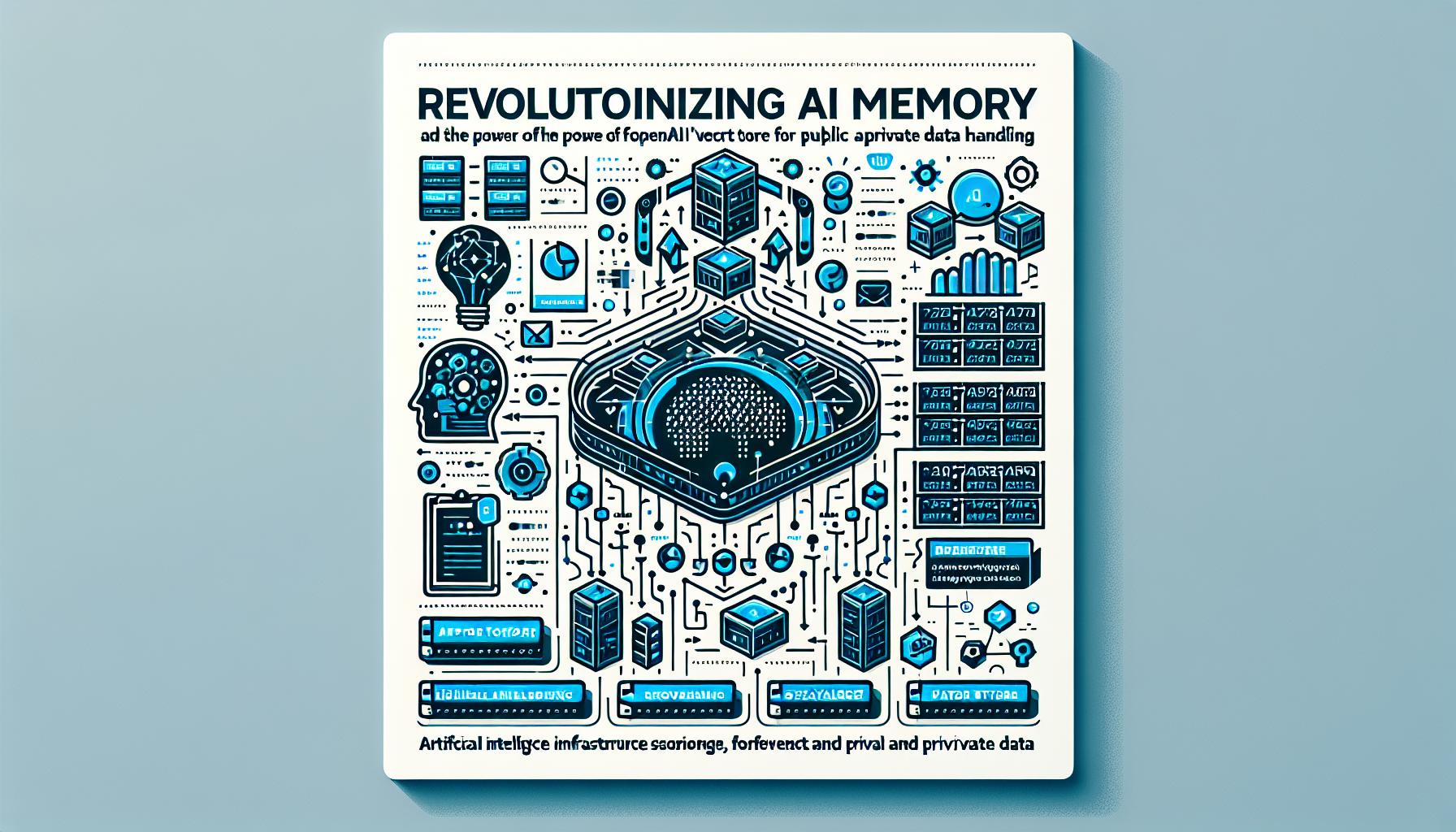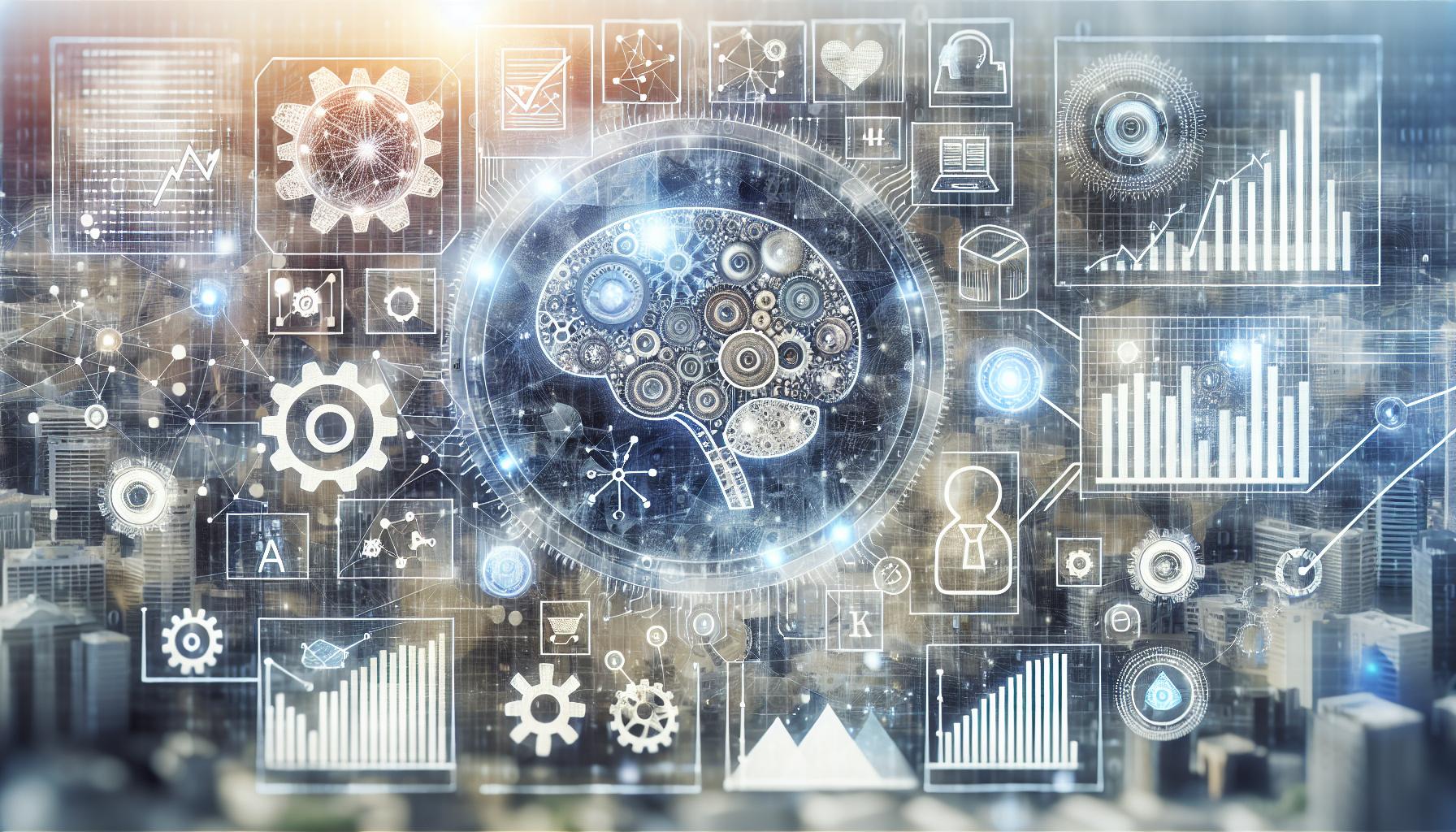Exploring AI's Future: Trends and Predictions for Business Integration

Introduction
The future of artificial intelligence (AI) is a topic that never ceases to captivate the minds of tech enthusiasts and industry leaders alike. In a recent podcast episode by A.I. Guys, pivotal movements within the AI industry were dissected, shedding light on how major companies are evolving and what this means for the future of AI. As we stand on the brink of a technological revolution, understanding these trends is crucial for businesses and individuals aiming to stay ahead of the curve.
One of the key highlights of the episode is the strategic pivot by OpenAI from its initial focus on Artificial General Intelligence (AGI) to developing business applications. This shift is indicative of a broader trend where AI is becoming more integrated into business operations, driving efficiency and innovation. Meanwhile, Anthropic, known for its unique approach to human-computer interaction, is reportedly losing its competitive edge. This raises questions about the challenges faced by AI companies in maintaining their market position in a rapidly evolving landscape.
Google, another tech giant, is actively embedding AI into its ecosystem, signifying a broader trend of technology firms seeking to incorporate AI across various platforms and services. This integration is pivotal for AI's widespread adoption, making the technology more accessible and beneficial to everyday users. Additionally, the potential for AI talking to AI is poised to revolutionize how tasks are automated and how digital systems communicate with each other.
OpenAI's Strategic Shift
OpenAI's transition from a focus on AGI to developing business applications marks a significant strategic shift. This move underscores a growing trend where AI is being tailored to meet the practical needs of businesses. By focusing on applications that can be integrated into existing business operations, OpenAI is enhancing the practicality and immediate applicability of AI in real-world settings. This shift not only promises to drive efficiency and innovation but also opens up new avenues for businesses to leverage AI for competitive advantage.
However, this shift also raises questions about the future of AGI technologies. As OpenAI pivots towards business applications, the development of AGI might take a backseat, potentially slowing down progress in this area. This could impact the overall trajectory of AGI technologies, influencing how they are developed and deployed in the future.
Anthropic's Competitive Challenges
Anthropic, another key player in the AI space, is noted for its distinctive approach to human-computer interaction. However, despite its innovative methodologies, it is reportedly losing its competitive edge. This could impact its influence and market position in the rapidly evolving AI landscape. Several factors could be contributing to this, including increased competition from other AI companies, technological advancements that outpace Anthropic's current offerings, and strategic misalignments within the company.
For Anthropic to regain its competitive edge, it may need to reevaluate its strategies and focus on areas where it can differentiate itself from competitors. This could involve investing in new technologies, forming strategic partnerships, or pivoting its focus to align with emerging trends in the AI industry.
Google's AI Integration
Google's efforts to embed AI into its ecosystem highlight a broader trend of technology firms seeking to incorporate AI across various platforms and services. This integration is pivotal for AI's widespread adoption, making the technology more accessible and beneficial to everyday users. By embedding AI into its ecosystem, Google is not only enhancing the functionality of its products and services but also paving the way for new innovations and applications.
This trend is likely to continue as more companies recognize the potential of AI to transform their operations and deliver value to customers. As AI becomes more integrated into everyday life, businesses will need to adapt to this new reality and find ways to leverage AI to enhance their products and services.
Future Trends and Predictions
Several futuristic trends were also discussed in the podcast, including the potential for AI talking to AI. This concept is poised to become more commonplace, revolutionizing how tasks are automated and how digital systems communicate with each other. By enabling AI systems to communicate and collaborate, businesses can streamline their operations and enhance productivity.
However, not all AI innovations are expected to have an immediate impact. For example, the current technology of video avatars is anticipated not to have a widespread practical impact yet. While they are an intriguing innovation, their mainstream adoption may still be on the horizon. As technology continues to evolve, it will be interesting to see how these and other innovations are integrated into business operations and everyday life.
Conclusion
The AI landscape is rapidly evolving, with major companies like OpenAI, Anthropic, and Google leading the charge. As these companies continue to innovate and adapt to changing market dynamics, the future of AI looks promising. However, there are still many questions that need to be answered, such as what factors are contributing to Anthropic losing ground compared to its competitors, how the shift of OpenAI's focus from AGI to business applications might impact the overall development of AGI technologies, and in what ways AI-powered workspaces could transform current workplace environments and productivity.
For businesses and individuals looking to stay informed and competitive in the quickly shifting AI sector, staying abreast of these trends and predictions is crucial. By understanding the strategic movements and technological advancements shaping the future of AI, they can position themselves to take advantage of the opportunities and challenges that lie ahead.
FAQs
Q: What factors are contributing to Anthropic losing ground compared to its competitors in the AI field?
A: Several factors could be contributing to Anthropic losing ground, including increased competition from other AI companies, technological advancements that outpace Anthropic's current offerings, and strategic misalignments within the company.
Q: How might the shift of OpenAI's focus from AGI to business applications impact the overall development of AGI technologies?
A: As OpenAI pivots towards business applications, the development of AGI might take a backseat, potentially slowing down progress in this area. This could impact the overall trajectory of AGI technologies, influencing how they are developed and deployed in the future.
Q: In what ways could AI-powered workspaces transform current workplace environments and productivity?
A: AI-powered workspaces could transform workplace environments by streamlining operations, enhancing productivity, and enabling more efficient communication and collaboration between digital systems. By leveraging AI, businesses can optimize their processes and deliver greater value to customers.




